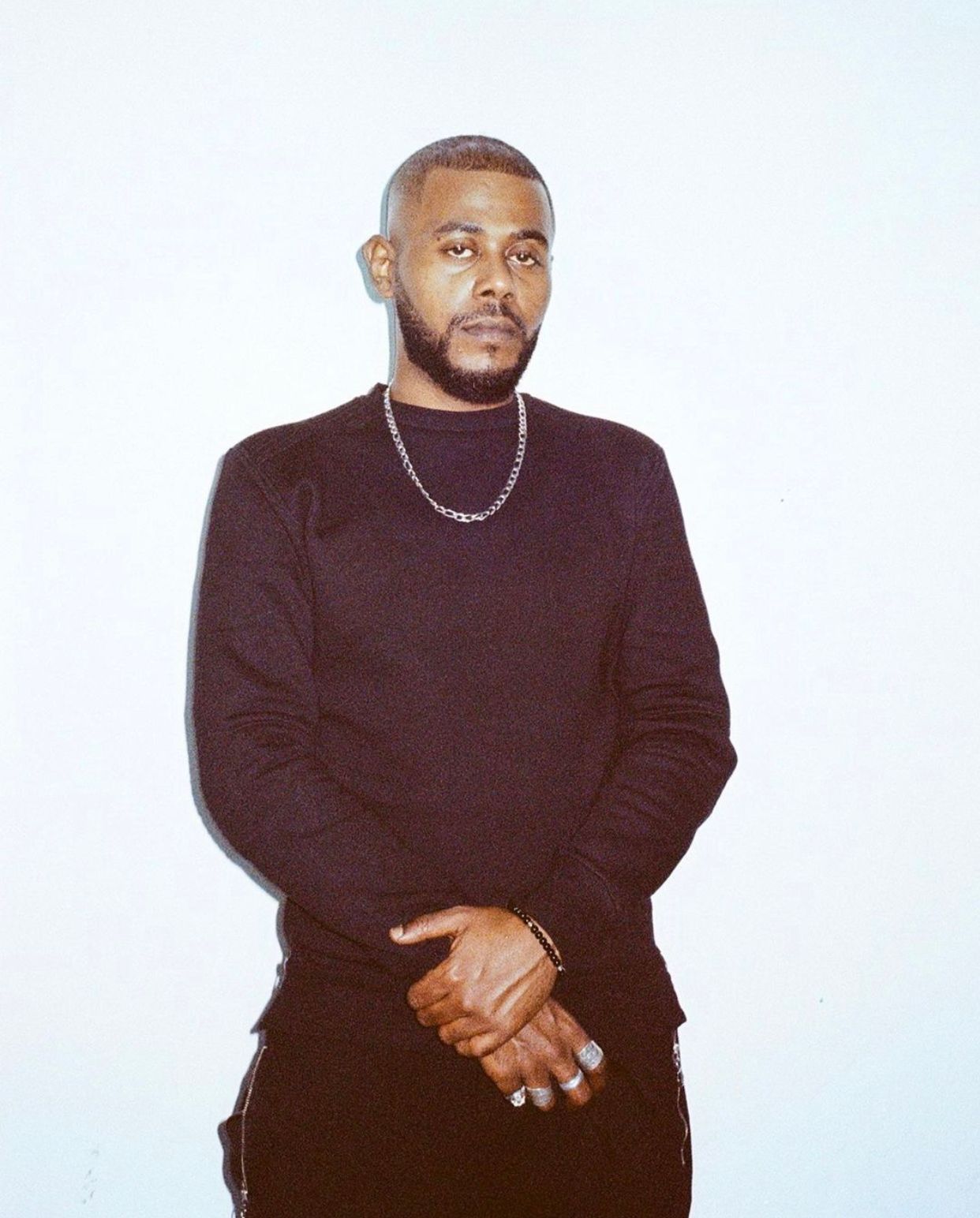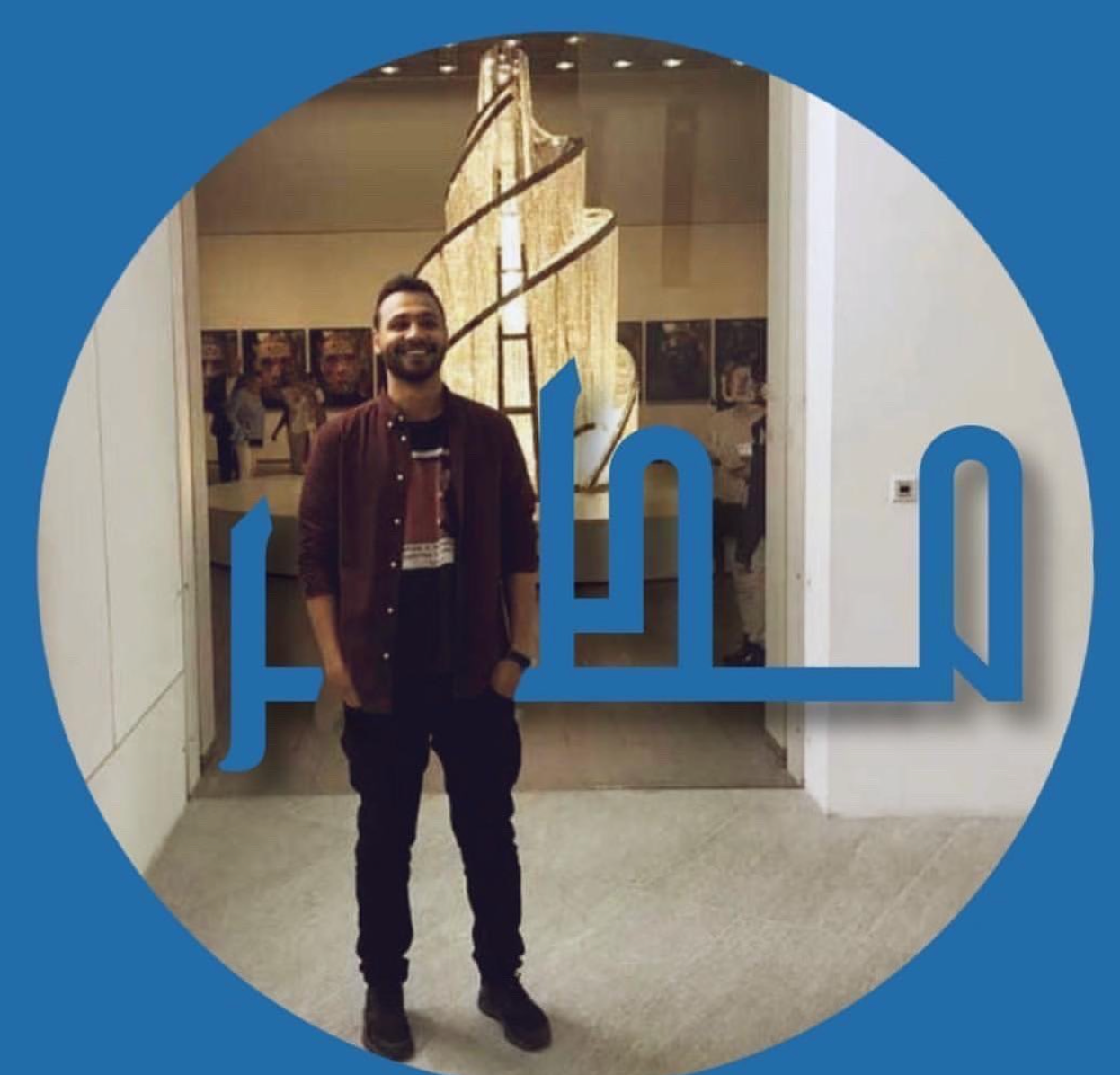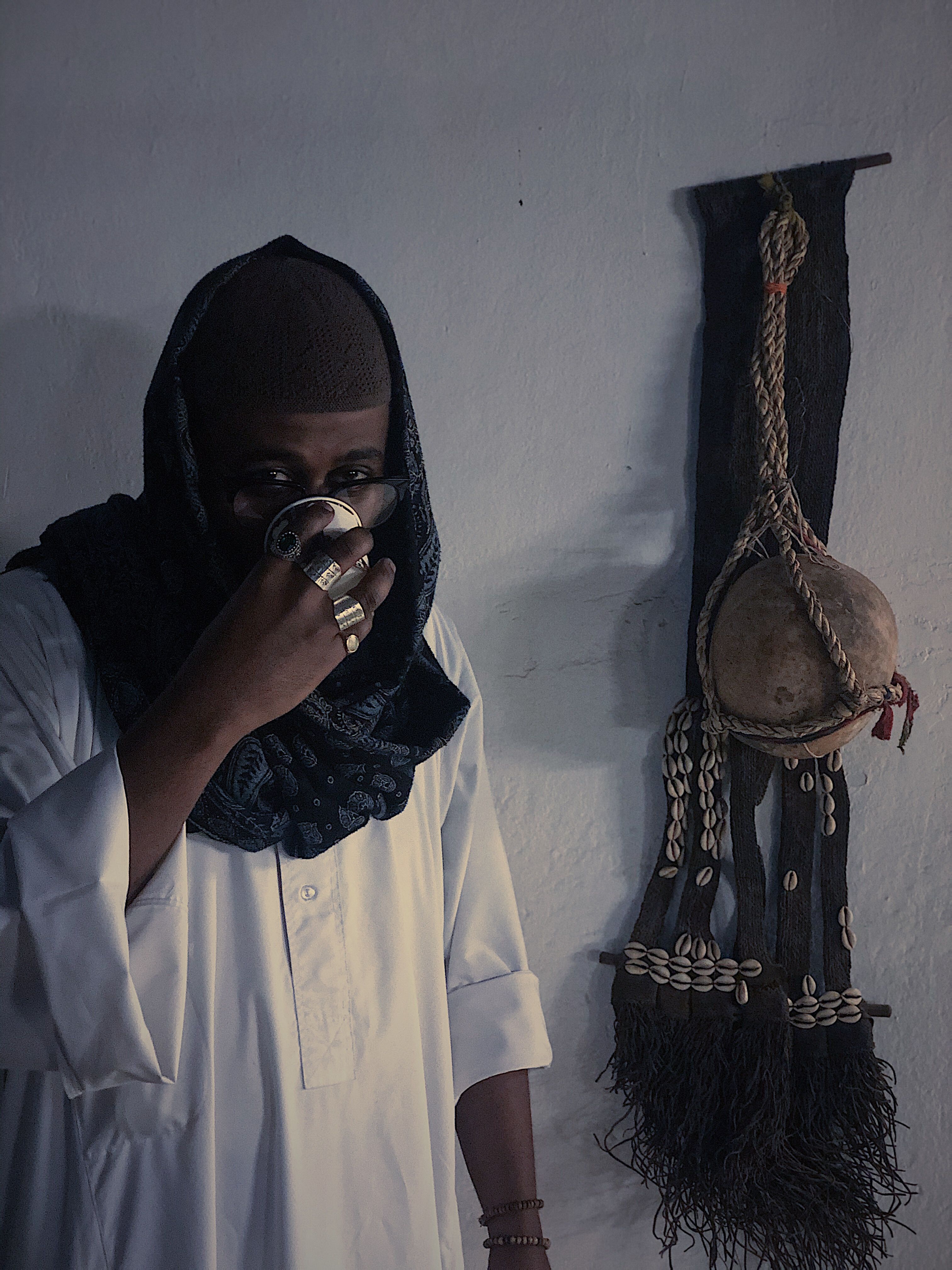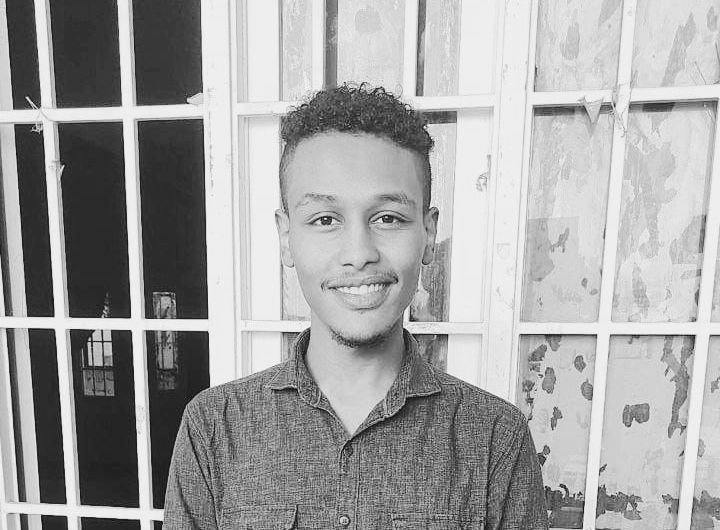Tamer Siddiq, known as "Rotation", has demonstrated an exceptional talent in music since the first song he released in 2015, although most of his fans only perceive him as a rapper; He is distinguished by writing and composing songs, whether it is African music or within the category of Rhythm and Blues (R&B).
In this interview, Rotation talks about his experience in the music industry, his beginnings, and how rap has played a crucial role in the Sudanese scene, particularly during the ongoing conflict in Sudan. He will also address how rap has shaped the cultural identity of Sudanese society in different ways.

Tamer Siddiq (Rotation), Source: Rotation media team
The Beginnings: Family, Inspiration, and the Spark of Creativity
Rotation's artistic journey began over nine years ago with the song "Green," a testament to the unwavering encouragement of his older brother. But the wellspring of his creativity flows much deeper, rooted in the influence of his family.
"I vividly remember rides to school with my father," Rotation reminisces. "A singer of prophetic chants and poetry, he'd hum melodies taking shape in his head, capturing them on an old recorder. Days later, I would hear those melodies transformed into chants, instantly recognizing them from our car rides."
This creative inheritance is evident in Rotation's process – melody first, then lyrics. It's a testament to the deep impact his father had on him. But inspiration extends beyond the family for Rotation. He acknowledges the importance of those who push him forward, both family and friends alike.
"Speaking of inspiration, two people come to mind. My mother, of course, is the cornerstone. From her, I learned the importance of giving to loved ones, even in the face of hardship. She instilled in me a heart that doesn't cower from difficulties," he adds,
His close friend, Mohamed Hashim Mattar, also left an indelible mark. "He possessed a remarkable ability to balance his inner world with the world around him," Rotation reflects, "He showered his family and friends with love and attention, a presence we'll forever cherish."
Rotation's story underscores the power of family, the spark ignited by encouragement, and the enduring influence of those who inspire us to keep creating, even in the face of life's challenges.

The martyr Mohamed Hashim Mattar. Source: Mattar Movement on Instagram
Intersectional Paths
Rotation's artistic path wasn't paved with roses. He acknowledges the constant presence of obstacles but views them as crucial to understanding the unique nature of being a rap artist. "Challenges," he says, "are personal experiences that vary for each artist."
He elaborates on the two main hurdles he encountered:
- Breaking Societal Barriers: "Initially," he recalls, "there was a societal taboo against having a family member as an artist. Sudanese people enjoy music, but accepting an artist within their own family wasn't always easy. My family, for instance, took time to come around. But eventually, they acknowledged my chosen path, and for that, I have immense love and respect for them."
- Financial Sustainability: "The second challenge was turning my passion into a financially viable career in a competitive field. However, I believe my music is not just a product, but an extension of myself, my identity. This realization fueled my perseverance and helped me create a unique style."
These challenges, Rotation emphasizes, became his fuel. "Passion allows you to see the bigger picture and enjoy the journey, no matter the hardships," he says. This perspective led him to prioritize truth and respect in his art. "Art, including rap, thrives on respect for society. Truth, by its very nature, is powerful – it's the foundation for success, not just in music."
"We rappers often adopt distinctive names and explore different personalities. In Sudanese culture, this multiplicity isn't a problem. We have different facets depending on where we are – at home, school, or with friends. While some rappers push these personas to the extreme, staying true to yourself in your music is essential" he elaborates.

Rotation. Source: His media team
Rap music is organically born from the heart of society, reflecting the times and places it emerges from. This is evident in "Street Rap," a rebellion against war and its devastation. Music can also be a powerful tool for peace, as exemplified by Bob Marley.
An artist's message can resonate even if they haven't personally experienced the events they depict. It is the artist's ability to capture the essence of these experiences that creates a genuine artistic expression. While music's influence on society may not be as direct as it once was, rap still plays a role in shaping Sudanese culture, particularly through social media. Prominent rappers leverage these platforms to connect with each other and their audiences.
Collaboration is key for Rotation. He's passionate about supporting fellow Sudanese artists and looks forward to future projects, including a new song featuring the singer "Tageel."

Source: Rotation’s media team
For those dreaming of a rap career, rotation's advice is this: "Focus on balance and don't rush releases for financial gain or fleeting fame. Your early work sets the tone for your entire career, so prioritize quality over quantity. Patience is essential." He also highlights the importance of consistency, making creation a habit; "Life is your canvas – paint it with your experiences, both good and bad. Consistent writing and composing will hone your skills and refine your voice."
Rap: A Voice for Generations
Rap's meteoric rise isn't just about catchy beats and rhymes. It's a powerful tool for social commentary and self-expression, a tradition that stretches from Tupac Shakur to Sudan's "Street Rap" movement. It's a genre that reflects the desires and realities of young people, a platform for them to speak their truth, unfiltered and unapologetic. As Rotation exemplifies, rap continues to be a powerful art form shaped by its creators and the communities it represents.
